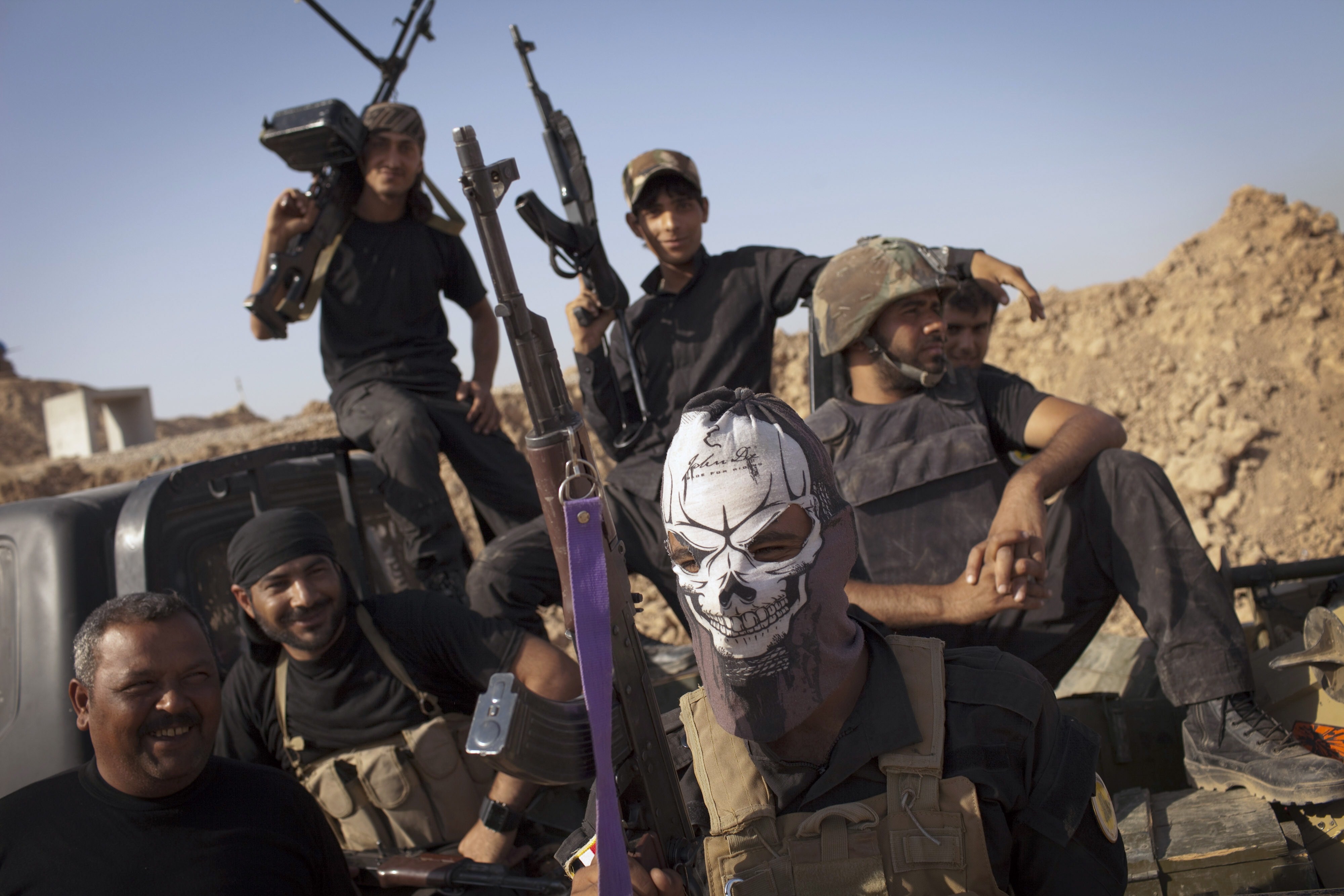 Sistani calls for Shiite militias to be part of Iraq state security
Sistani calls for Shiite militias to be part of Iraq state securityAgence France-Presse
Iraq's most revered Shiite cleric, Ayatollah Ali Al Sistani, has opposed calls to disband a controversial paramilitary force which was instrumental in defeating ISIL group in the country.
Iraq is "always in desperate need of heroic men who have backed up the army and federal police and who fought alongside them on different fronts", said Abdel Mahdi Al Karabalai, the ayatollah's representative.
"We need to continue to benefit from this important source of energy, within the constitution and judicial framework," he said in a sermon at Friday prayers in the Shiite holy city of Karbala, south of the capital.
Mr Al Karabalai stressed that the Hashed Al Shaabi's arms belonged to the state and its mission was to defend national security.
The force was established in 2014 after Mr Al Sistani urged Iraqi citizens to take up arms against ISIL militants who had swept aside government forces and seized control of much of northern Iraq.
But the Hashed, a Shiite-dominated alliance, remains deeply divisive and has been accused of a string of abuses.
Known in English as the Popular Mobilisation Units, the various forces within the Hashed can field a total of between 60,000 and 140,000 fighters.
Iraq's parliament has classed it as a state force operating within the constitution.
Calls have been growing from the West for the Hashed to disband, with French president Emmanuel Macron proposing "a gradual demilitarisation" of the group and for all militias in Iraq to be "dismantled".
On Monday, the influential Shiite cleric Moqtada Al Sadr ordered his fighters in the Hashed Al Shaabi, known as the Saraya Al Salam, or Peace Brigades, to disband and hand over territory held by them to state security forces.
But Hashed spokesman Ahmad Al Assadi, who is also a member of parliament, said that Mr Al Sistani wanted the Hashed units to be retained as part of Iraq's security system.
The Hashed suffered 7,637 dead and 21,300 wounded in the three-year war to drive out ISIL, according to a top Hashed commander, Qais Khazali.
Iraq declared final victory over ISIL on December 9, saying the extremist group had been driven out of all the Iraqi territory it once held.
No comments:
Post a Comment